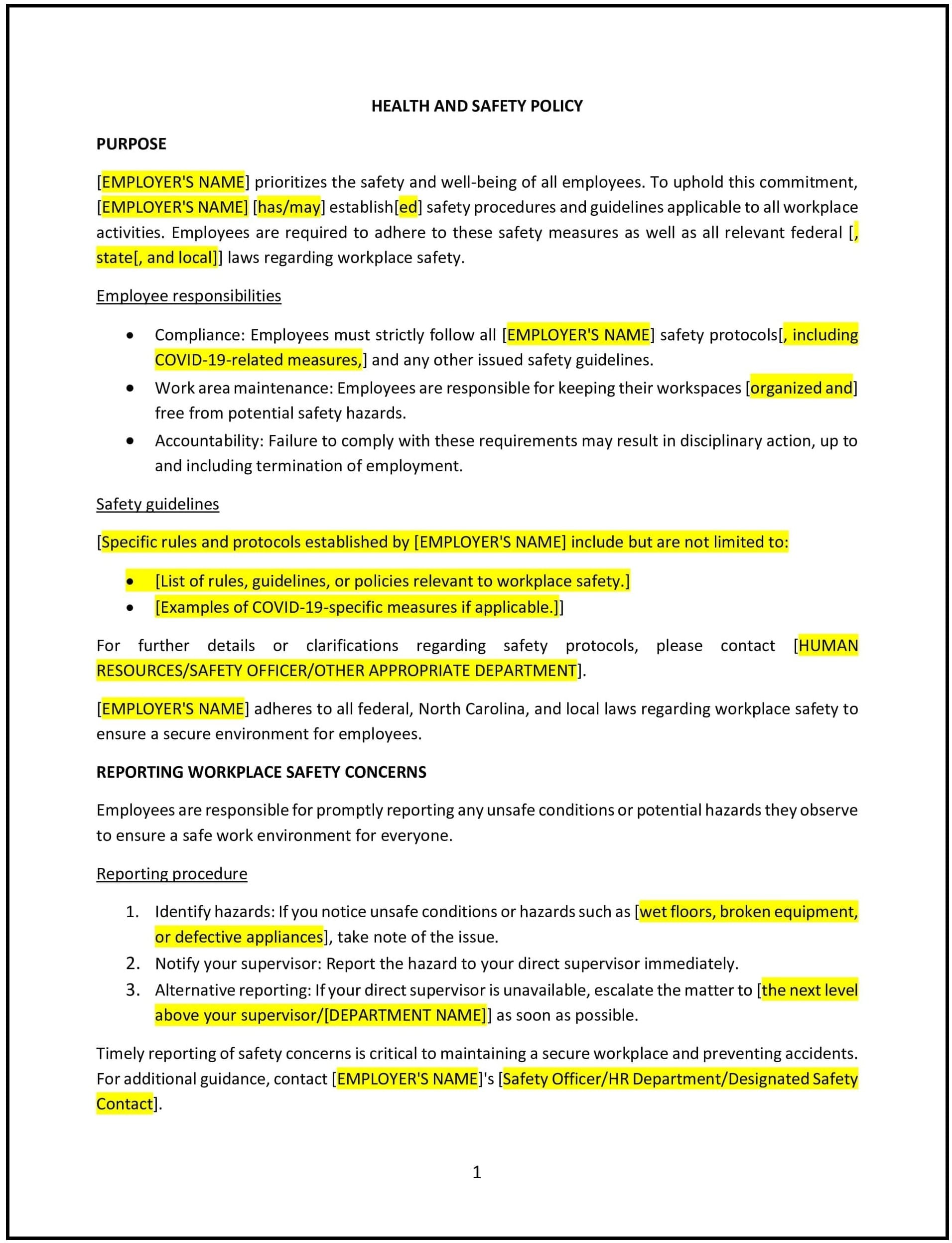Health and safety policy (North Carolina): Free template
Got contracts to review? While you're here for policies, let Cobrief make contract review effortless—start your free review now.

Customize this template for free
Health and safety policy (North Carolina)
A health and safety policy helps North Carolina businesses establish clear guidelines for protecting the well-being of employees, customers, and visitors in the workplace. This policy outlines the company’s commitment to maintaining a safe and healthy working environment by addressing hazards, providing necessary equipment, and strengthening compliance with applicable health and safety regulations.
By adopting this policy, businesses can reduce workplace injuries, improve employee morale, and comply with state and federal safety laws.
How to use this health and safety policy (North Carolina)
- Identify workplace hazards: Conduct regular assessments to identify potential hazards in the workplace, such as physical, chemical, biological, or ergonomic risks.
- Provide safety equipment: Specify the types of safety equipment required for employees to perform their tasks safely, such as protective clothing, eye protection, or machinery safeguards.
- Establish emergency procedures: Define emergency procedures for situations like fire, medical emergencies, or hazardous material spills, including evacuation routes and emergency contacts.
- Set health and safety training requirements: Outline the training programs employees must complete to ensure they are aware of safety protocols and know how to use safety equipment.
- Reflect North Carolina-specific considerations: Ensure the policy aligns with North Carolina's Occupational Safety and Health Act (OSHA) regulations and any state-specific health and safety requirements.
Benefits of using this health and safety policy (North Carolina)
This policy provides several benefits for North Carolina businesses:
- Promotes employee well-being: A safe workplace helps protect employees from injuries, illnesses, and long-term health issues, contributing to their overall well-being.
- Reduces workplace accidents: By identifying and mitigating risks, businesses can reduce the likelihood of accidents and injuries, leading to a safer work environment.
- Enhances employee productivity: Employees are more productive and engaged when they feel safe and secure in their work environment.
- Complies with legal requirements: The policy helps businesses comply with North Carolina’s workplace safety laws, including OSHA regulations, reducing the risk of fines and penalties.
- Improves company reputation: A strong commitment to health and safety improves the company’s reputation as a responsible employer, attracting both customers and top talent.
Tips for using this health and safety policy (North Carolina)
- Communicate the policy clearly: Ensure all employees are aware of the company’s health and safety policy and understand their responsibilities in maintaining a safe workplace.
- Conduct regular safety audits: Regularly assess the workplace for potential hazards and review safety protocols to ensure they are effective.
- Provide safety training: Offer ongoing training to ensure employees know how to identify hazards, use safety equipment, and respond to emergencies.
- Review the policy regularly: The policy should be reviewed annually to ensure it complies with North Carolina’s laws and reflects any changes in the company’s operations or health and safety practices.